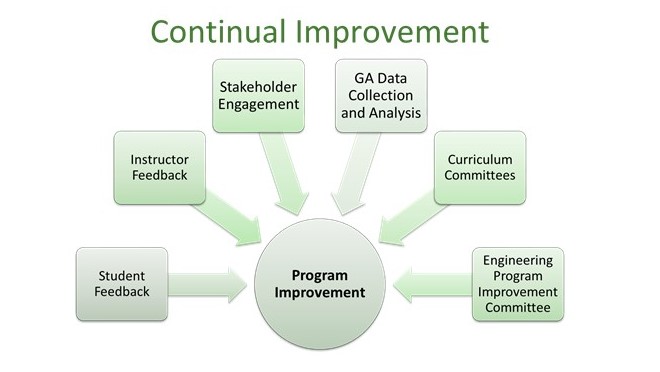2021 review
After our visit from the Canadian Engineering Accreditation Board (CEAB) in fall 2021, USask Engineering received its final accreditation renewal decisions from the CEAB in July 2022.
The board renewed the accreditation status of all eight USask Engineering discipline programs: Chemical, Civil, Computer, Electrical, Engineering Physics, Environmental, Geological, and Mechanical.
"This very positive outcome is a worthy testament to the excellent quality of our programs," says Akindele Odeshi, the college's associate dean academic. "This could not have been possible without the dedication and hard work of every faculty and staff member of the college."
The college is also grateful for the contributions of each of our USask partners and stakeholders for their contributions during the review.
About accreditation
Engineering programs are reviewed by the Canadian Engineering Accreditation Board (CEAB), a standing committee of Engineers Canada.
Engineering schools must follow the CEAB's criteria and procedures and undergo periodic reviews and site visits, which occur every six years. Our programs have been accredited since 1965.
Benefits of accreditation
Program quality: Accreditation ensures that all programs are meeting the same high standards.
Continuous improvement: Regular accreditation fosters continual improvement of engineering education.
Licensure: Students who receive a degree from an accredited engineering program meet the academic requirements needed to become licensed with Canada's engineering requlators.
Interprovincial and international mobility: Degrees from accredited programs are accepted by engineering regulators nationwide and are recognized by international partners (signatory countries to the Washington Accord).
How schools maintain accreditation
Maintaining accreditation status requires ongoing monitoring and compliance with the CEAB Criteria and Procedures. These are the main components.
Graduate Attributes: Institutions must demonstrate that their graduates have the following 12 attributes.- Knowledge base for engineering
- Problem analysis
- Investigation
- Design
- Use of engineering tools
- Individual and teamwork
- Communication skills
- Professionalism
- Impact of engineering on society and the environment
- Ethics and equity
- Economics and project management
- Lifelong Learning
Graduate Attributes Indicators: Each graduate attribute is defined by measurable indicators that describe what students must achieve to demonstrate competence.
Students: Accredited programs must have functional policies and procedures that deal with quality, admission, counselling, promotion and graduation of students.
Curriculum content and quality: The curriculum content and quality criteria are designed to assure a foundation in mathematics and natural sciences, a broad preparation in engineering sciences and engineering design, and an exposure to non-technical subjects that supplement the technical aspects of the curriculum.
Program environment: The accreditation board considers the overall environment in which an engineering program is delivered, including the quality of the educational experience.

Contact
Loading...

